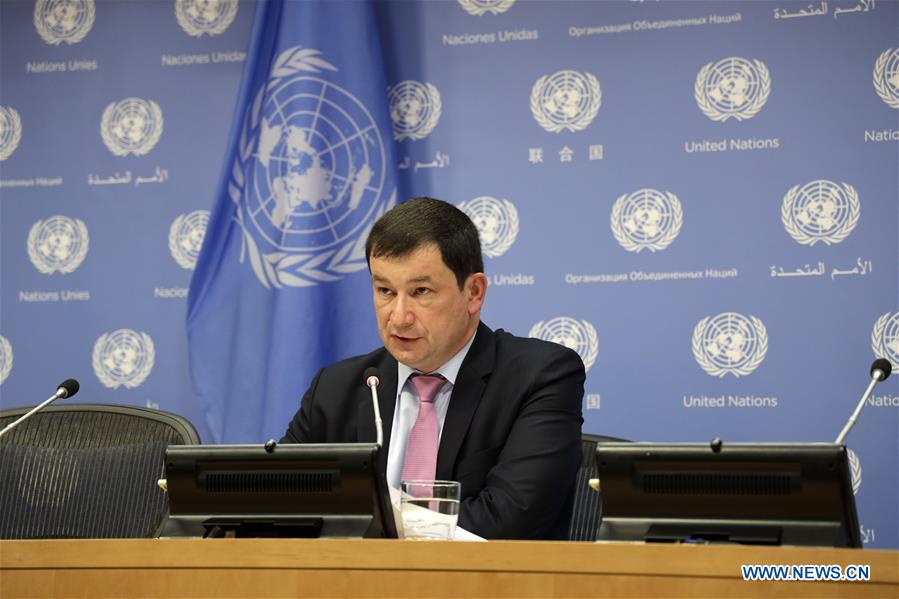Russia proposes “security system” for Gulf at UN

A Russian UN envoy highlighted Thursday the importance of establishing a security system in the Gulf, saying it might be essential for consolidating political and diplomatic efforts in the region.
Russia’s Deputy Permanent Representative to the United Nations Dmitry Polyanskiy quoted the remarks from Russia’s new security concept for the Gulf area, which has been circulated to the UN Security Council.
Polyanskiy, also charge d’affaires a.i. of the Russian UN mission, stressed some principles set out in the concept document, particularly that “all stakeholders interested in eliminating the hotbed of extremism and terrorism in the Middle East should be consolidated in a single counter terrorism coalition.”
As for the practical work to launch the security system, he said “we see it through bilateral and multilateral consultations among stakeholders, including regional and extra-regional states, the UN Security Council, the League of Arab States, the Organization of Islamic Conference, and the Cooperation Council for the Arab States of the Gulf.”
“These contacts should lead to the establishment of an action group to prepare an international conference on security and cooperation in the Gulf area,” the concept document added.
It further said the central long-term objective is the creation of a security and cooperation organization in the Gulf that would include, in addition to the Gulf countries, Russia, China, the United States, the European Union, India and other stakeholders as observers or associated members.
Polyanskiy said “we are ready to work with everybody who would like to contribute to it,” adding “we already received a certain feedback from certain actors. And we hope that this process will continue and lead all of us to something positive and tangible.”
In the late 1990s, Russia began to develop a Collective Security Concept for the Gulf. The ideas presented in the document have been updated several times and took on a new dimension in the current circumstances.
Tensions in the Gulf have been on the rise in the past several months.
In one of the latest incidents, Iran seized a Britain-flagged oil tanker in mid-July in the Strait of Hormuz, which sits at the mouth of the Gulf, over what it described as a breach of international maritime regulations.
This came after Iran’s own oil tanker had been seized by British marines over an alleged breach of the European Union’s sanctions against Syria.
The US administration has been seeking to form an international coalition to monitor and potentially escort vessels in the Strait of Hormuz and some other waterways in the Middle East.
Britain said Monday that it would join the US-led mission in the Strait of Hormuz.



